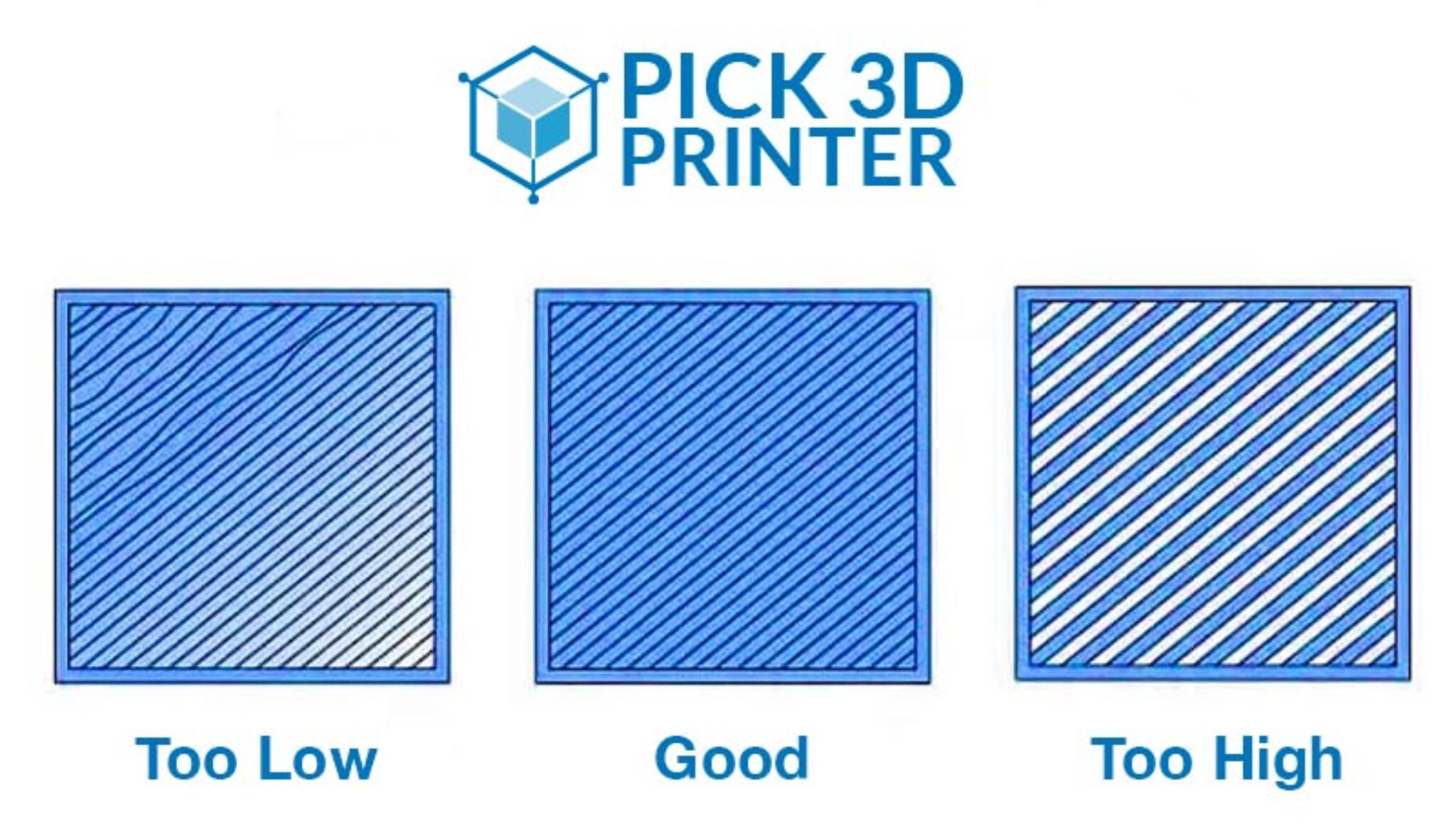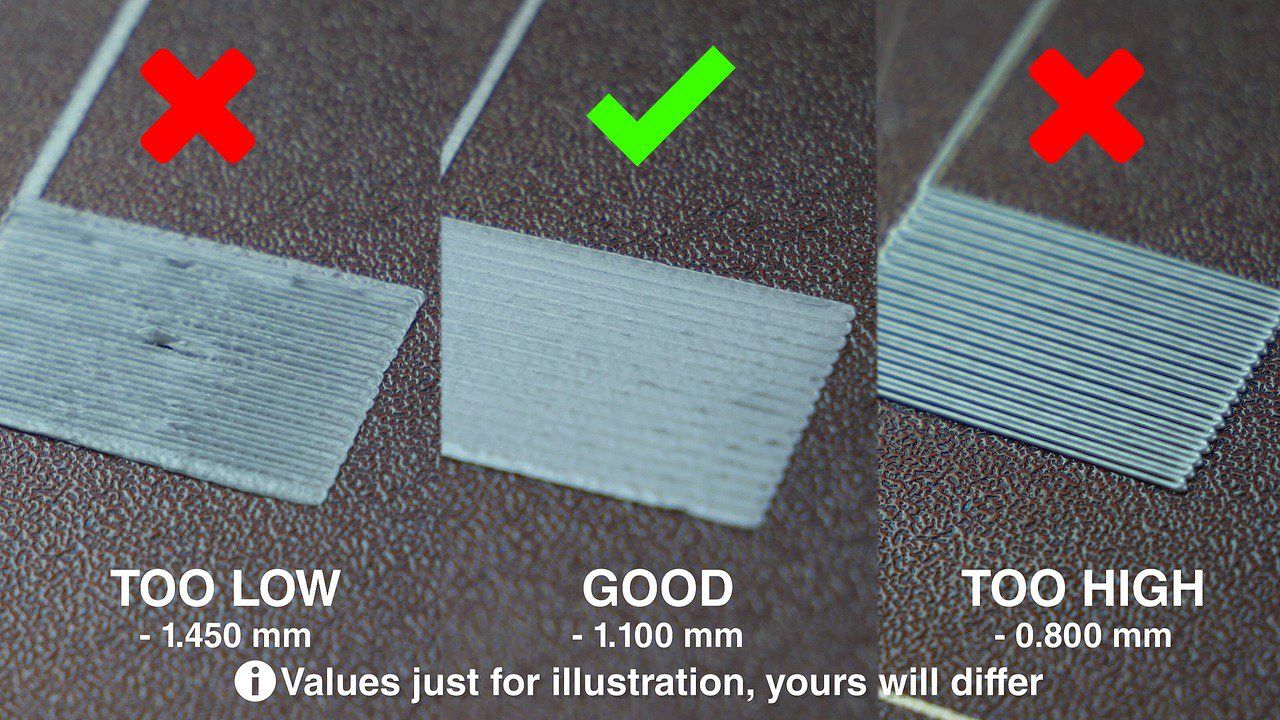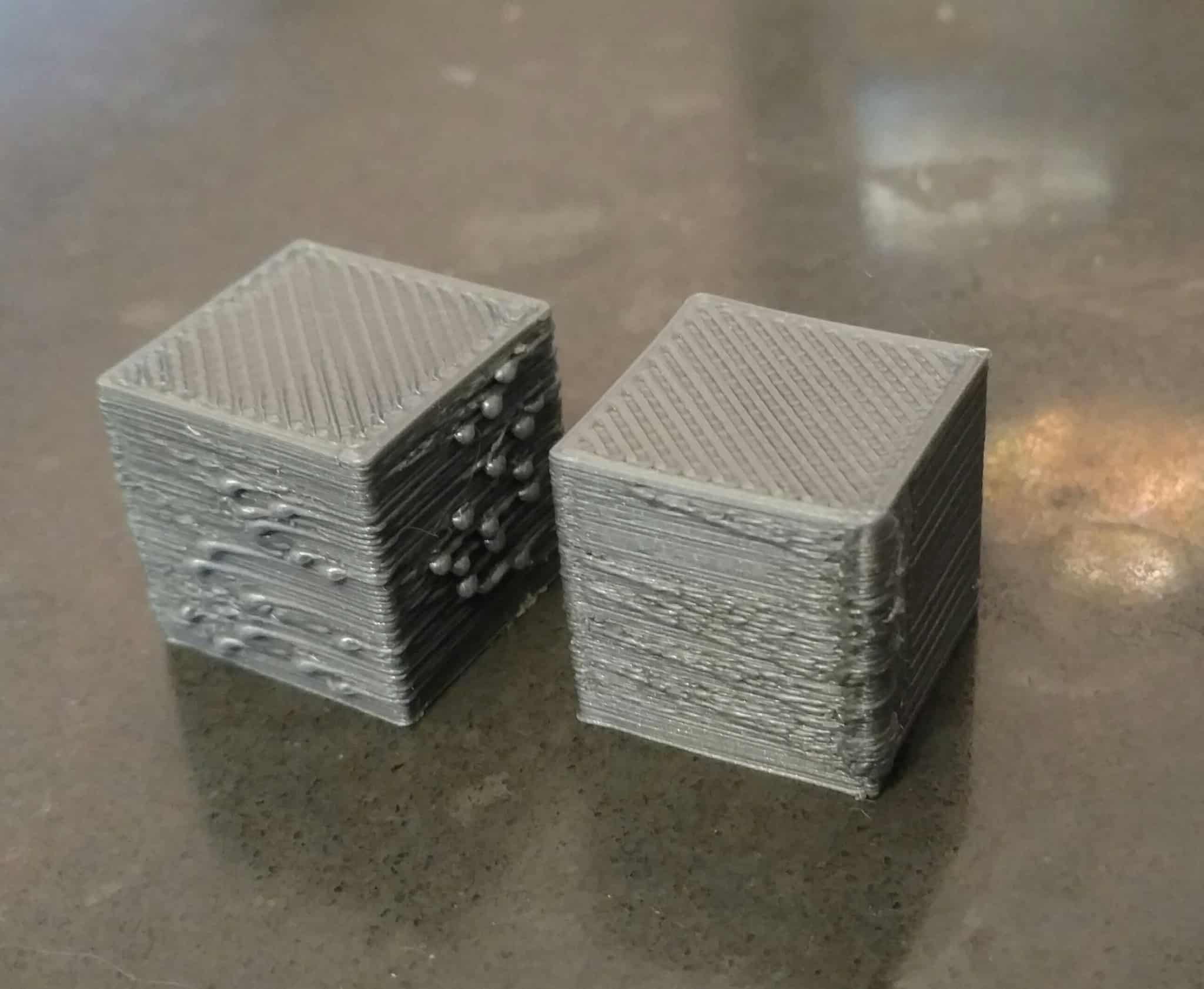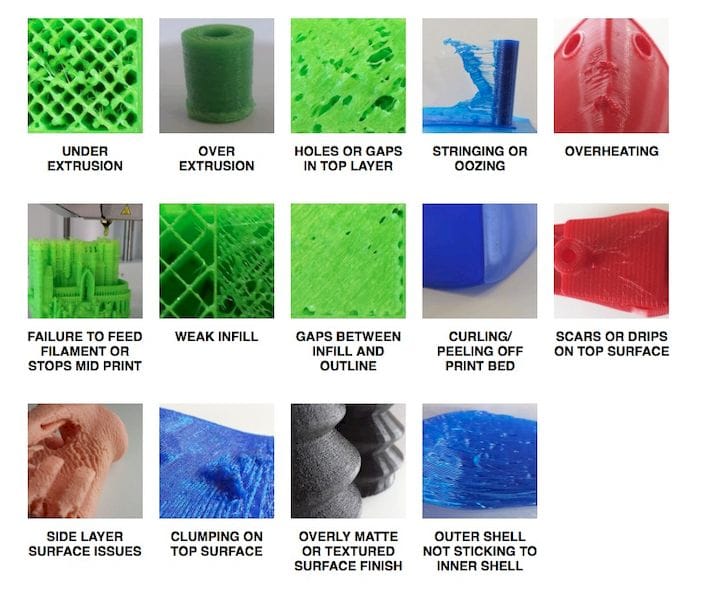5 Common Problems Faced with Metal 3D printing And How You Can Fix Them FacFox Docs
This guide outlines some of the most common issues faced by 3D printing practitioners and highlights steps that may be taken to resolve those issues. Not extruding at the start of the print. Print not sticking to bed. Jammed nozzle/clogged extruder. Pillowing, e.g. incomplete top layer fills, top layer holes/gaps.

6 Common 3D Printer Problems and How to Avoid Them Pick 3D Printer
AUTOMATION & IIOT. When the 3D printer gives up, don't wait for the experts. Here are solutions to the most common problems: layers failing to attach, stringing, and overheating.

Troubleshooting Guide to 24 Common 3D Printing Problems Part 1 Geeetech
During 3D printing of the first layer, the individual lines don't touch each other. There's small gaps where the lines of the infill don't touch the outlines of the wall. The shape of the extruding line is very round. With the proper distance, the extruded line of filament is slightly squished, and pancake-shaped.

7 Common 3D Printing Problems With Solutions
Print Quality Troubleshooting Guide. This guide is a great place to start if you are trying to improve the quality of your 3D printed parts. We have compiled an extensive list of the most common 3D printing issues along with the software settings that you can use to solve them. Best of all, the guide uses a large collection of real-world images.

Simplify3D Releases Comprehensive Troubleshooting Guide for All Your 3D Printing Issues
3D printing problems: The article explains common 3D printing problems, such as poor adhesion, warping, clogging, stringing, and over-extrusion. Problem identification: Each problem has a clear photo, a description of the symptoms and causes, and a checklist of possible solutions. Problem prevention: The article also provides tips on how to.

3D Printing Most common problems for beginners Ram Peripherals 3D Printing & Disc
3D Printer Troubleshooting: Pillowing. Filament size. More common with 1.75 mm filament. Pillowing is an issue that can affect all 3D printers, however, it's far more common on those using 1.75 mm filament over 2.85mm. Check the fan position. Cooling is normally the issue start by checking your fans.

Troubleshooting Guide to 19 Common 3D Printing ProblemsPart One Geeetech Blog
The good news is that most 3D printing problems have simple fixes, and you don't need to go back to school or buy a new printer. This article runs through seven common 3D printing problems with solutions to help you get a handle on your 3D printing. Let's jump in! 1. Under and over extrusion Credit. Under extrusion happens when the 3D.

Troubleshooting Guide to 19 Common 3D Printing ProblemsPart One Geeetech Blog
3D Printing Troubleshooting: All Problems & Solutions. by Alastair Jennings. Updated Sep 6, 2022. Complete 3D printing troubleshooting guide. All common 3D printing problems and their solutions. Includes both FDM and SLA 3D printing issues.

Troubleshooting Guide to 7 Common 3D Printing Problems, our solution. Geeetech
3D printer nozzle problems are caused by impurities in the filament, filament jams, or residue from previous prints. To clear a clogged nozzle, use a thin, flexible wire or a 0.4mm nozzle cleaning needle. You can also use the "cold pull" technique to remove blockages.

Troubleshooting Guide to 19 Common 3D Printing ProblemsPart Two Geeetech Blog
Heated print beds solve a lot of problems in 3D printing, but they cause some problems, too. One such issue is called elephant footing, where the first few layers become "squished", flaring out wider than intended. Large and heavy models are most at risk, as the weight of the model pushes down on the base of not-quite-solid filament.

Troubleshooting Guide to 19 Common 3D Printing ProblemsPart One Geeetech
Causes for clogging. Unclog the nozzle with acupuncture needles. Hot and cold pulling. Teflon switching. Adjusting the printing parameters. If you don't know how to fix it, dissasemble the extruder and hotend. 👋 That's it for the 3D printing troubleshooting guide by Bitfab.

Guía de resolución de problemas de impresión 3D 3D Neworld
Almost every 3D printer has a fixed nozzle size. This size determines the resolution. In most cases, a nozzle diameter of 0.4 millimeters is used. You may experience problems if you print very thin areas that are smaller than the size of the nozzle. The thinner the printed areas should be, the smaller you should choose the nozzle diameter.

Troubleshooting Guide to 7 Common 3D Printing Problems, our solution. Geeetech
Most Common 3D Printing Errors. Either you are a beginner or an experienced 3D Printing user, getting trapped in between a print is not something rare. We all go through such problems when 3D printing. Sometimes our prints won't stick to the surface and other times, it may start oozing. These do seem scary.

Six Good 3D Printing Troubleshooting Guides « Fabbaloo
Insufficient cooling: Check that the fan turns on after the first couple of layers, and make sure that it is pointed directly at the print. Minimum time per layer too low: Go to settings -> advanced and find "Min time per layer". Increase this number. 10. Printing in the air.

How to Solve Most Common 3D Printing Issues1 Extrusion Problems
The walls of your 3D print are either too thin or not suitable for this small size. Suggested corrections. Draw thicker wall thicknesses to suit the filament thickness. Apply a sub-multiple deposition width of the wall width in the slicer setting, while remaining compatible with the extrusion diameter and layer height.

Simplify3D Releases Comprehensive Troubleshooting Guide for All Your 3D Printing Issues
Though Google+ may have been proclaimed dead by some, there is actually a large and active 3D printing community. 3D Printing is by far the largest community with over 240.000 members. Well-known experts such as Josef Prusa, Thomas Sanladerer, Nils Hitze, Brook Drumm and many others hang out here. Within the community there is a sub-section.